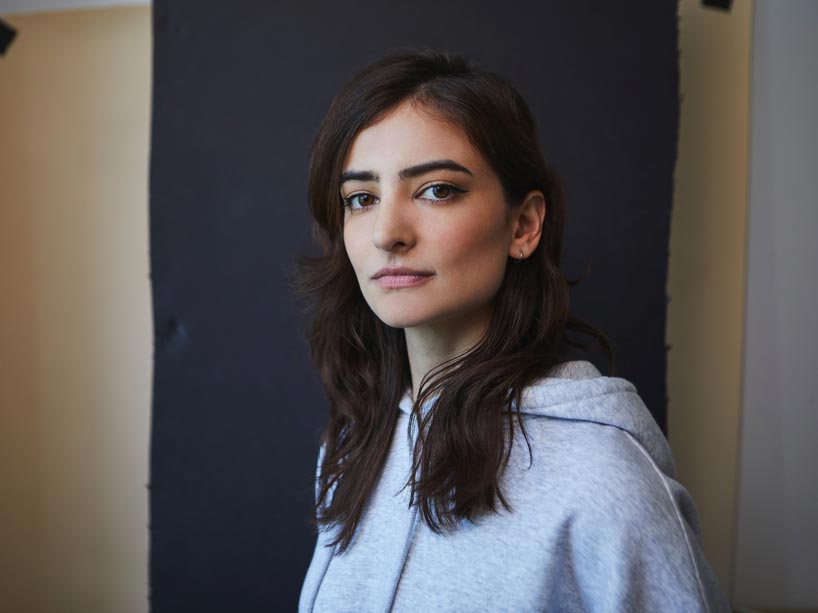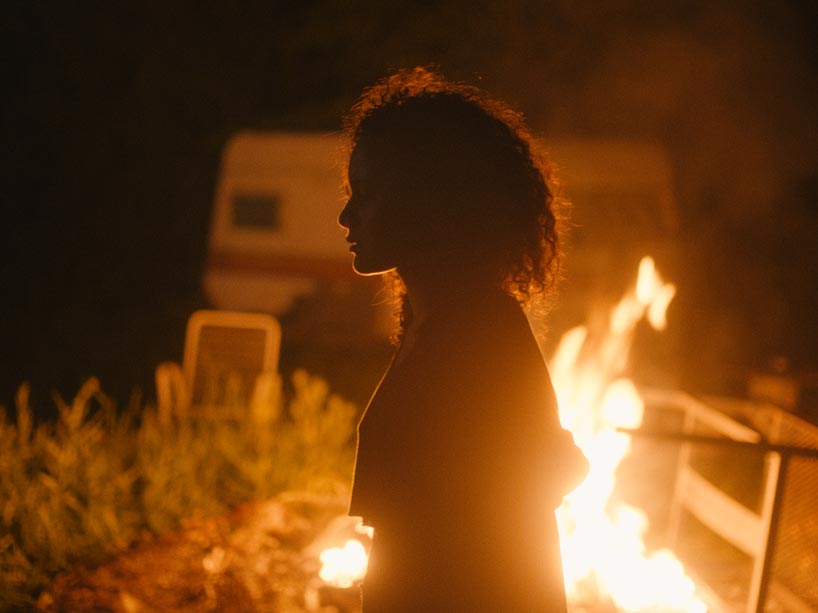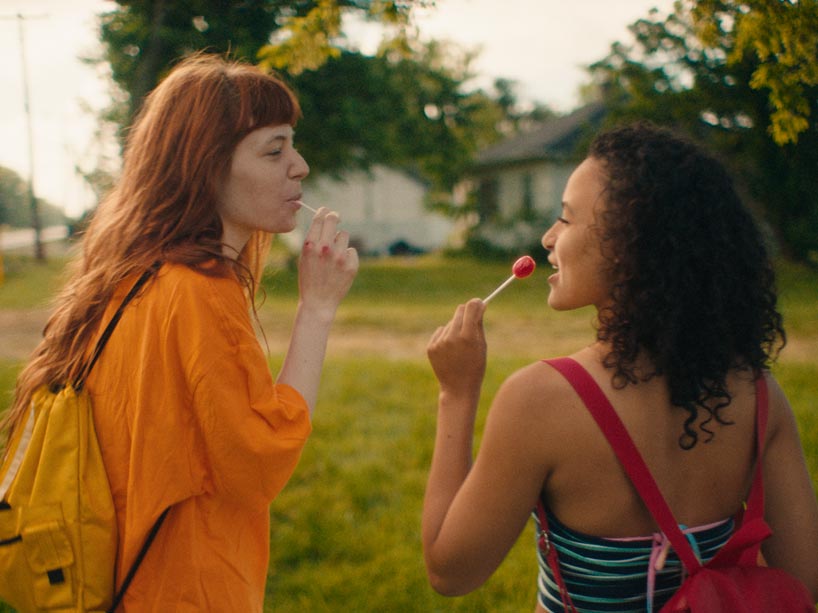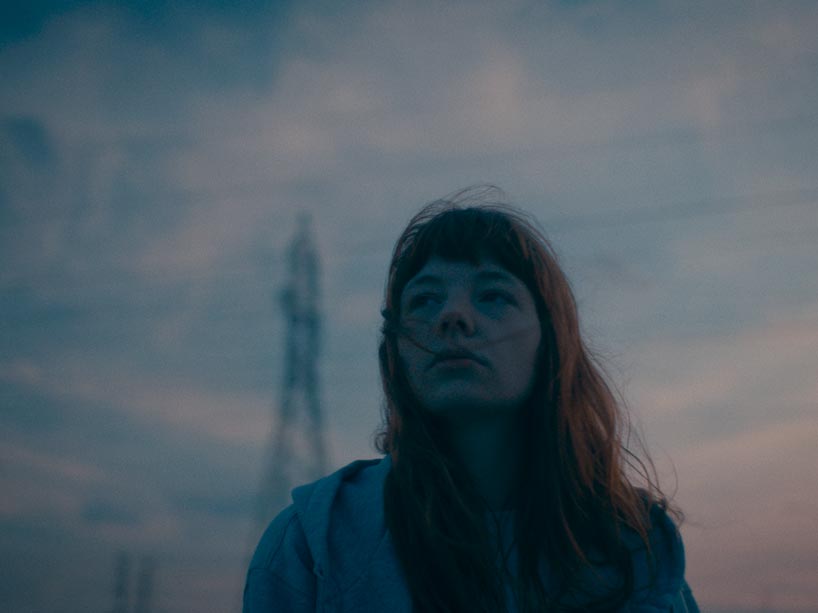'Firecrackers' director Jasmin Mozaffari is the reel deal

Jasmin Mozaffari’s directorial debut, Firecrackers, premiered at the 2018 Toronto International Film Festival and is now nominated for four 2019 Canadian Screen Awards. Images courtesy of Prowler Film.
In many ways, Jasmin Mozaffari (image arts ’13) is living every image art grad’s dream. In her fourth year at Ryerson, she directed a short film as her thesis that was selected by the Toronto International Film Festival’s (TIFF) annual student film showcase.
This short became the basis for her acclaimed 2018 feature Firecrackers (external link) , which premiered at TIFF in September 2018, was dubbed “one to watch” by The Globe and Mail (external link) , and is now nominated for four 2019 Canadian Screen Awards (external link) – for directing, editing, costume design, and the John Dunning Best First Feature Award.
In advance of Firecrackers’ wide release across Canada, starting March 29, Mozaffari spoke with Ryerson Today about her time at Ryerson, her goal to reflect real women’s experiences on film, and what’s up next for her and the film.
In your interviews, you’ve often talked about wanting to make a film that reflects real women’s experiences. Has that always been a goal for you?
Yes, I’ve always considered myself a feminist, ever since I was young. So I’ve always been interested in stories that portray women in a very realistic way, rather than an idealistic way, or through a male gaze. Although I didn’t always know I wanted to be a director.
I was actually at York University before I went to Ryerson. I was taking film studies, and I realized very quickly that I wanted to be making films, not just studying them.
So, when I started at Ryerson, I think it was very clear my films would focus on female subjects. But it wasn’t until my thesis year when I was making the short film Firecrackers that I was willing to take some risks. I wanted to be bold, even in a student film.
What did the short film look like compared with the feature?
The short film, in many ways, is a student film. For me as a director, it shows a lack of confidence, in the shot-making and the directing of actors. I was new to directing. It was shot on 16-millimetre film, which I really like.
But the themes of the feature are there in the short film. The characters are the same. The short film, being about 15 minutes, can’t really go into the deeper themes. As I matured as a director, I could take even more risks with the feature. I just had more confidence as a person and as a director by the time I made the feature.
How long did it take you at Ryerson to grow into your style?
It took me the whole four years. I had never made a film before I started in 2009. Some people had going in, but I hadn’t. It wasn’t until I made the short that I felt, “This feels like me.”
But then again, after film school, I did two other short films that I think allowed me to find my voice even further, and I think that’s an ongoing process. I don’t think that will ever end.
I always knew I wanted to be a director, but I wanted to find out, “What is my voice?”—and I think the beginning was the short film.
Do you remember some of the more experimental or different shorts you made?
There was a year that I made a documentary on my mom. She has been a great influence on me as a person, because she’s a single mom, she doesn’t really have a career—she has a job where she paints houses for a living, and I help her do that. And she’s also a dancer. I was making a doc showing both sides of that. I really enjoyed making that film.
I’d say that that doc on my mom was the one that I cherish, other than the short of Firecrackers.
Firecrackers, the feature, has this very intimate visual style—a lot of handheld camera and close-ups. But it doesn’t feel rough-looking. How did you find that style?
After I graduated, I started working with the high-end digital cameras that became available, and I shot with [cinematographer] Nick Haight, who was in my year—he’s a very established cinematographer now.
We made two shorts together, and that’s where I got to try my hand at a handheld visual style, but one that was pretty well-crafted and well-planned.
The short film of Firecrackers is a 16mm film, and it’s on a tripod a lot of the time—we didn’t want to take too many risks, because we didn’t have a monitor and we thought we might lose focus. Those sorts of things held us back. So, I was very eager, as soon as I graduated, to use an ARRI camera, and I shot some shorts that were more hand-held.
By the time I got to Firecrackers I worked with [cinematographer] Catherine Lutes, and we wanted to hit that balance of not docu-style, but feeling the energy of the character. A lot of the credit goes to Catherine for establishing that style, but we didn’t want it to be too rough around the edges.
Did it feel different making a film outside of school? Did it feel like more of a high-wire act?
While in school, because you’re in an academic setting, I think you can fall into that mindset of thinking, “This is an assignment, and if I just check the boxes then I’ll get an A.”
But I think Caitlin Grabham, who’s the producer—we met in film school, and we make every film together—I think we’ve always approached each film as, “This is a film. Let’s make it the best we can do.”
It felt like we were kind of operating outside the academic structure when we were making it, because both she and I cleared our entire schedules for fourth year.
We took summer school every year so that in our fourth year we only had film production. It felt like we were not in school—we were spending all our time driving up to North Bay location-scouting, eight-hour trips just for Firecrackers. It felt like, “Now we’re making a film for our full year—let’s focus on that.”
What were some of the big advantages of film school?
I think there’s a lot. If you’re lucky, you’ll meet people you’ll work with for the rest of your career. Caitlin and I have a partnership—she’s the producer, I’m the writer/director, but it’s a creative partnership.
I’ve seen that in alumni as well: a lot of the most successful alumni coming out of Ryerson have these partnerships. Caitlin was one, and Kristy Neville was also a producer on Firecrackers, and she was in our year. We met there, and that was crucial.
The thing is, you have critiques of your work, and I think that that’s so important: that everything you make, every assignment you make, you put up on a screen in front of your peers, and everybody critiques it. You have to get used to that, and then you end up self-critiquing. You have to always set the bar higher.
I also had a really good directing class in fourth year. It was actually more like an acting class. A lot of the core lessons I learned about the directing, and one of the books I got in that class, I still use—and I used for Firecrackers.
What does it mean to you to be nominated for four Canadian Screen Awards this year?
It feels great to be nominated. For the Canadian Academy to recognize this micro-budget feature means a lot.
I especially feel proud of my team, and I’m very happy that both Simone Smith (editor) and Mara Zigler (costume designer) have been recognized for their amazing efforts on this film. Everyone put their heart and soul into this project.
How did you first find out about the nominations, and how did it feel?
I was invited by the Canadian Academy to attend the press conference that announced the nominees. I was there with Ally, the film’s publicist, and when my name came up on the screen for Achievement in Direction, it felt like a bit of a shock. It’s exciting to be a category with two other amazing female directors (Sophie Dupuis and Geneviève Dulude-De Celles), and Maxime Giroux, who is amazing.
What’s next for you and for the film?
Right now, I’m in the very early stages of development for a new feature and a limited TV series. I’m also trying to break into directing television.
Firecrackers continues to travel on the festival circuit and it will be released theatrically across Canada, starting March 29.
Read more about Ryerson alumni nominated for Canadian Screen Awards.


